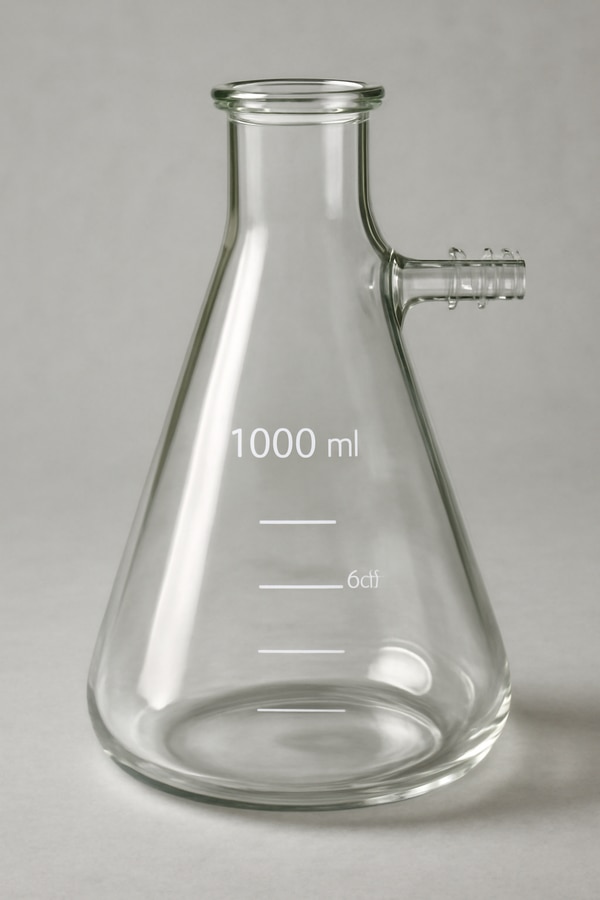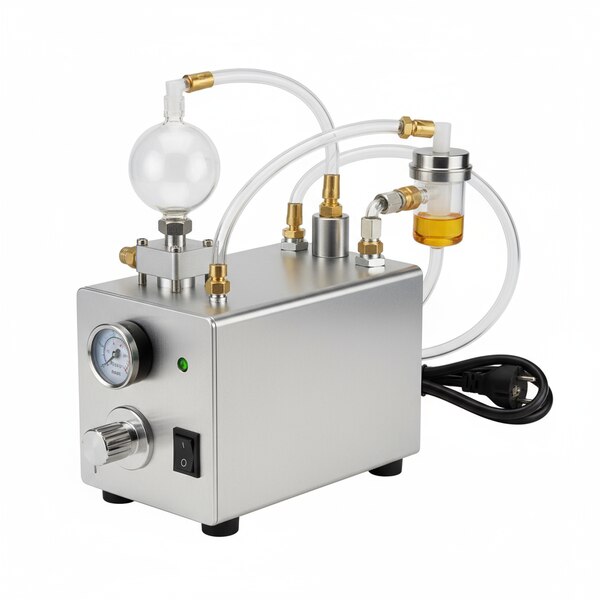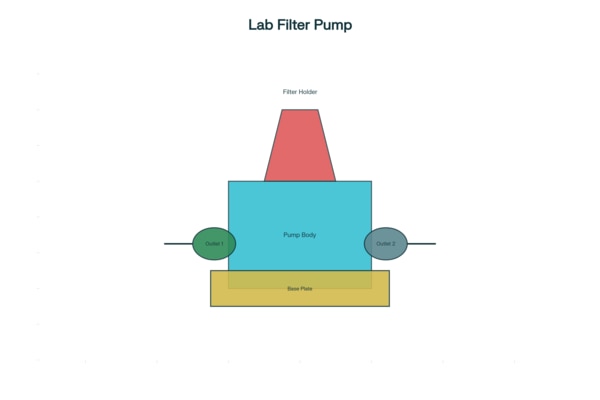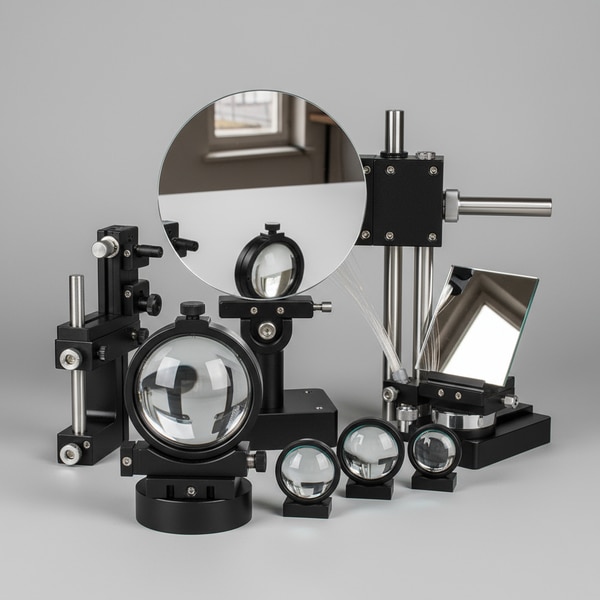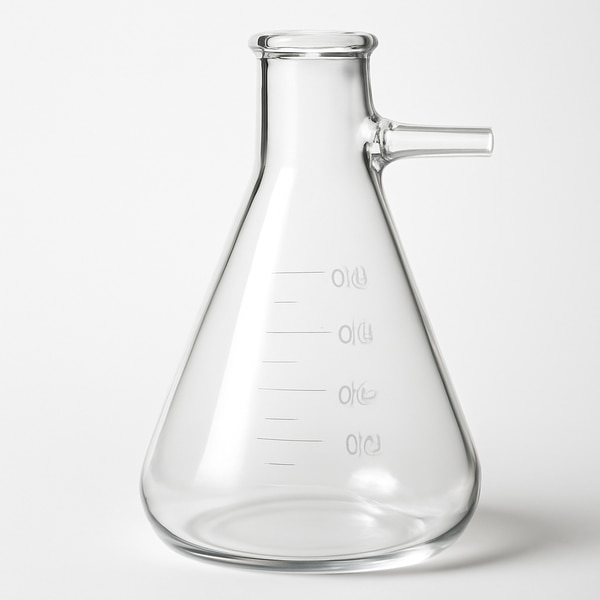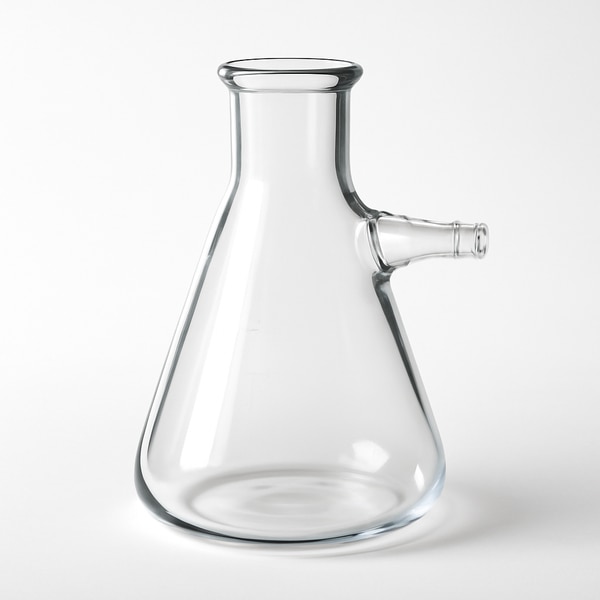N-0070 General Lab Supplies
Description of Filter Paper, 12.5cms, Student Grade, Dr. Watts Brand:
This filter paper is a high-quality laboratory-grade paper designed specifically for student use, marketed under the Dr. Watts brand.
It is made from premium quality cellulose material, ensuring excellent filtration performance with consistent retention and flow rate.
The filter sheets are round, with a diameter of 12.5 centimeters, and a thickness of about 2 mm, offering reliable solid-liquid separation.
They are packed in sets, typically 100 sheets per pack, with a blue box packaging for brand identification and protection.
These filter papers are ideal for a wide range of filtering applications in chemistry labs, educational institutions, pharmaceutical labs, and research environments.
Suitable for qualitative filtration tasks such as clarity testing, sediment filtering, and general solution separation.
Manufactured in India with adherence to ISO 9001:2015 certification standards.
Dr. Watts filter papers are known for their good wet strength, non-toxic nature, and low ash content, making them perfect for education and routine laboratory use.
The generated image shows a circular 12.5 cm diameter white filter paper sheet in blue packaging, representing the student-grade Dr. Watts brand for lab filtration(see the generated image above).Here is the description of the requested items along with their generated image captions:
Copper Electrode Plates 75mm x 25mm with terminals: Copper plates used as electrodes in electrochemical experiments, with terminals for easy connection, size approx 75 x 25 mm. Ideal for educational and laboratory use.
Lead Electrode Plates 75mm x 25mm with terminals (N-0059): Lead plates with terminals for laboratory electrochemical applications, size approx 75 x 25 mm, used in controlled environments due to lead's toxicity.
Zinc Electrode Plates 75mm x 25mm with terminals: Zinc plates widely used for electrochemical cells, teaching, and research, with terminals and dimensions approx 75 x 25 mm.
Electrophorus Strip: A metal strip used in electrostatics experiments to generate static electricity by induction, involving a dielectric base and grounding process.
ESR Stand (for 12 tubes): A laboratory rack made of mild steel or stainless steel designed to hold 12 ESR tubes upright for sedimentation rate testing in hematology labs.
ESR Stand (for 12 tubes), Stainless Steel: Enhanced stainless steel version providing corrosion resistance and durability for holding 12 ESR tubes in clinical and pathology labs.
ESR Stand (for 6 tubes): Laboratory rack for holding 6 ESR tubes, made from iron or plastic, suitable for smaller lab setups or fewer tests.
ESR Stand (for 6 tubes), Stainless Steel: Stainless steel rack for 6 ESR tubes providing corrosion resistance, compactness, and repeated use durability.
ESR Tube: A transparent glass tube used in erythrocyte sedimentation rate tests, usually with sodium citrate anticoagulant, approx 8 mm diameter and 120 mm length.
Eureka Can (Overflow Cans), Metal: Metal overflow vessel used in physics labs for volume displacement via water overflow, typically galvanized iron with spout.
Eureka Can (Overflow Cans), Plastic: Plastic version of the overflow can, lightweight and corrosion-resistant, ideal for physics lab displacement experiments.
Filter Paper, 12.5cms, Student Grade: Round filter paper, 12.5 cm diameter, qualitative grade suitable for student laboratory filtration tasks, with good absorption and flow properties.
Filter Paper, 12.5cms, Student Grade, Dr. Watts Brand: High-quality cellulose-based filter paper, 12.5 cm diameter, in packs of 100 sheets, designed for educational and general laboratory use with consistent filtration performance.
Each item has a corresponding generated image with the specified size and format.
Send
Message

